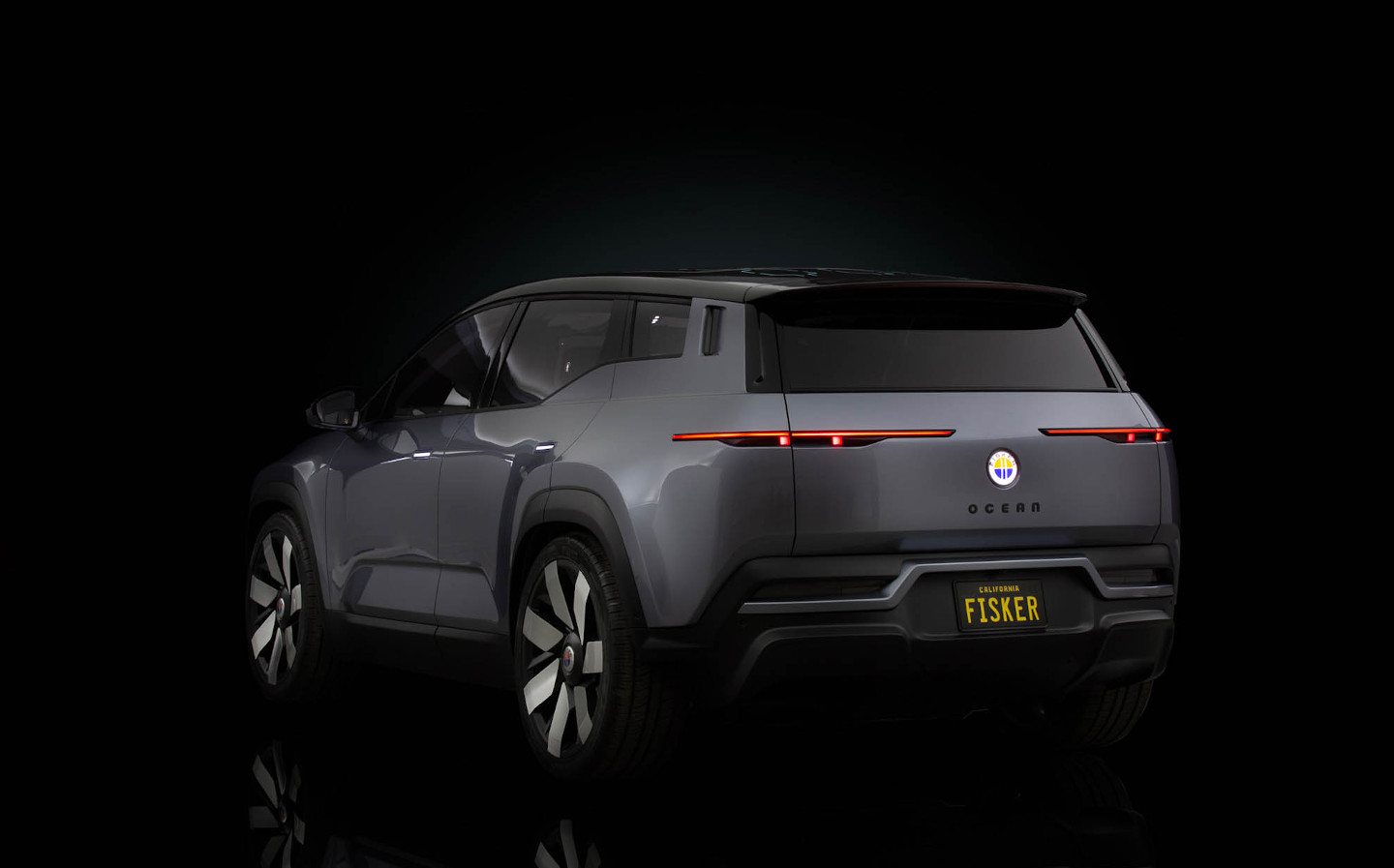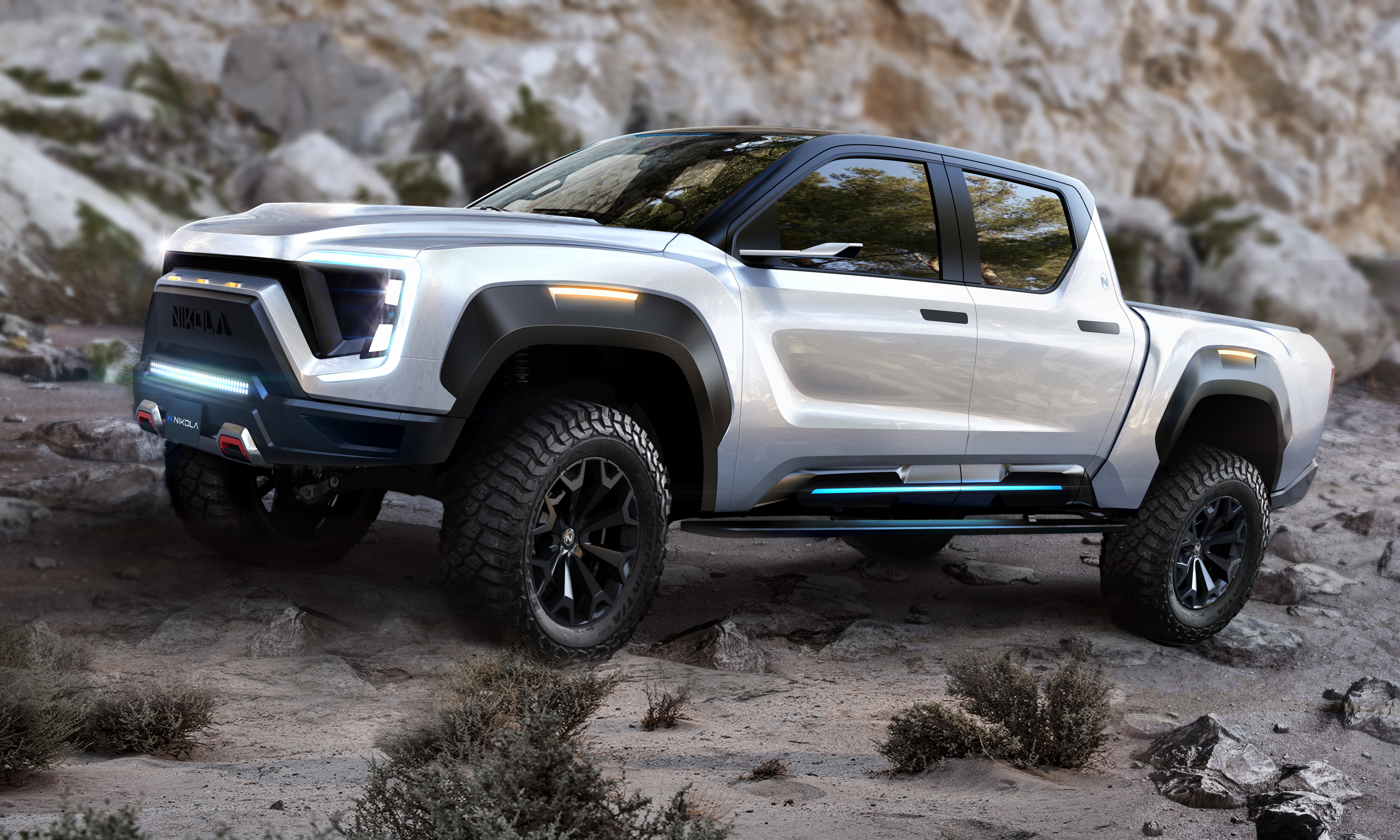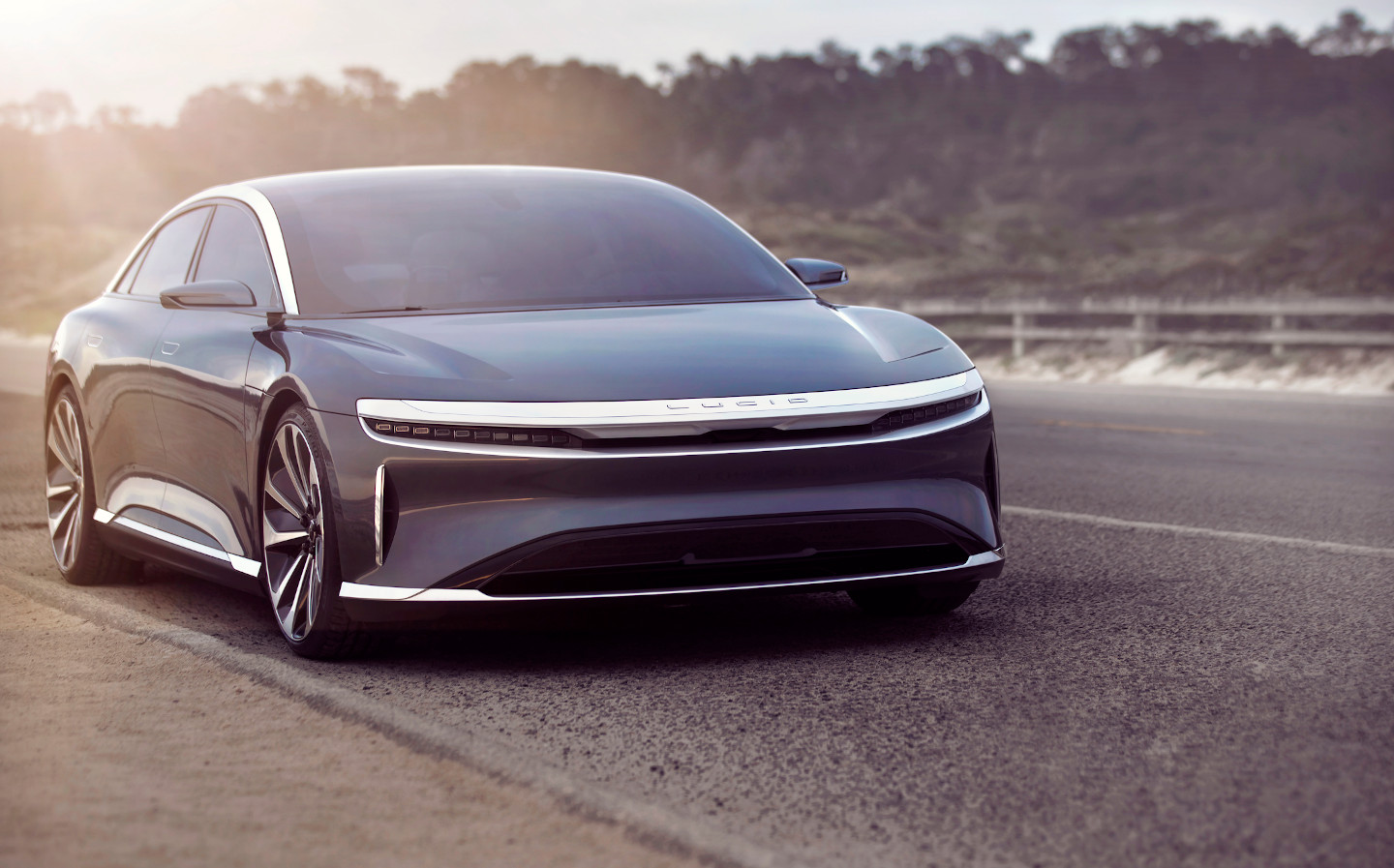Five electric start-ups with their eyes on Tesla
You may not have heard of them yet ... but watch this space
TESLA has been in something of a purple patch of late. It recently became the most valuable car company in the world, installed the 2,000th Supercharger site (and the 18,000th Supercharger) across the globe, and enigmatic CEO Elon Musk claimed last week that the company is closing in on level five autonomous driving tech (the highest level). We’ll take that last one with a pinch of salt but Tesla is generally looking like an increasingly safe bet in a rapidly electrifying landscape.
However, while Tesla is now a reasonably established company, there are a number of smaller electric car makers nipping at its heels, and some are garnering some serious financial backing.
Fisker

The Fisker name has been around for a while but it’s been a bit of a stop-start journey. Founder Henrik Fisker is the ex-design chief of Aston Martin, who penned cars including the DB9. He also designed the stunning BMW Z8, though his name became better known when he launched his own brand nearly a decade ago and brought us the Fisker Karma, a beautiful extended-range electric grand tourer that sadly ended production after only a year. The product was good but few start-ups make it to maturity, and Fisker’s company closed.
The Karma name, though, went on to become a marque in its own right, with the similar-looking Karma Revero entering production in 2016, though Henrik was no longer involved. With Fisker Inc., he has returned.
Its flagship model is set to be the Fisker Ocean, which is slated for production in 2022. It’s an electric SUV, meaning that it will face heavy competition (in every sense) from the big name car companies, but with a claimed range of more than 300 miles and party pieces including the “California Mode”, which “lowers and slides nine glass windows and panels to open the entire cabin”, it’s sure to grab the attention of would-be Teslarati.
With a vegan interior and materials made from recycled fishing nets and ocean plastics, Fisker is also mining the same environmental vein as Polestar (see below), going as far as to claim that the Ocean will be the “world’s most sustainable vehicle.”
And with a report from Reuters yesterday claiming that Fisker had secured a merger that will make it worth £2.3bn, the company now has the cash and the nous to make a worthy Tesla rival. A claimed price of $29,999 (£23,800) after federal tax incentives will also help its case, although it’s likely that the UK price will be significantly more than that.
Rivian

Rivian is a company whose aim is to make “electric adventure vehicles”. Its primary offerings are to be the R1S and the R1T — an electric SUV and pick-up respectively. The company claims that both models will be able to do up to 400 miles per charge and pack up to 740bhp (there’s a lot of “up to” in the press material). Further impressive specs include a wading depth of more than three feet (914mm) and a towing capacity of 7,700kg, which are both comparable to a Land Rover Defender.
The company was founded in 2009 but stayed in the shadows for nearly a decade before bursting out at the 2018 L.A. Auto Show with its two off-road offerings. Since then it has grown at a rapid pace, accumulating investment and hiring around 2,400 people, according to The Verge.
Rivian has also established partnerships with huge companies both in and out of the car making world, including with Ford, with whom it is developing an electric vehicle for the Lincoln line, and with Amazon, for whom it is reportedly developing a fleet of electric vehicles. Rivian, therefore, is a company with its fingers in many pies.
Around $2.5bn (£1.98bn) in new investment means that Rivian’s total funding to date comes in at around $6bn (£4.76bn), which makes the company one of the best-poised in this list to establish itself as a real rival to Tesla. The models should hit UK roads around a year after they arrive in America.
Nikola

Nikola is a company evidently not afraid to be compared to Tesla, having chosen the same namesake as the electric juggernaut — Nikola Tesla, the Serbian-American inventor credited with huge contributions to the alternating current (AC) electricity supply system.
Nikola stands out from the crowd, however, for its use of hydrogen fuel cell (FCV) technology alongside pure-electric. It’s also notable for the diversity of its products — the company makes (or is in the process of making) lorries, electric off-roaders and even electric jet skis.
It’s the Nikola Badger that will have Tesla looking over its shoulder, though. As an electric pick-up, it’s a competitor to the Tesla Cybertruck (and Rivian R1T), and boasts performance credentials that may have Elon Musk quaking in his moon boots: 0-60mph in a staggering 2.9 seconds, which is the same as the top-spec tri-motor Cybertruck, and a range of up to 600 miles, compared to the top-spec Cybertruck’s “500+”.
It’s also available in a choice of powertrains: pure-electric or fuel cell electric. If you choose the latter, the truck makes ingenious use of the water you get as a byproduct of hydrogen power.
https://twitter.com/nikolatrevor/status/1276296716052869120
Order books opened for the Badger at the end of June, and last month Nikola reported that its shares had rocketed in value by more than 60%. However, it doesn’t look like the Badger will be available in the UK, at least initially.
Polestar

Arguably Polestar is the safe bet in this list. While it has only been in operation in its current guise since 2017 — as the performance spin-off of the Volvo brand — it has the full might of Chinese heavyweight Geely behind it. Geely, as the juggernaut responsible for feats like the Lotus Evija electric hypercar, is by no means a small player in the EV world, and Volvo itself is obviously no stranger to making a good car, electrified or otherwise.
The imaginatively named Polestar 1, which debuted last year, is a plug-in hybrid can go 77 miles on electric power alone before the petrol engine joins the party for hybrid running. Its first pure-electric car, which you might have guessed is called the Polestar 2, has just been released. It’s a direct rival to the Tesla Model 3 and can be driven 292 miles per charge.
It’s also rapid. The initial models feature two electric motors delivering power to all four wheels for what Driving.co.uk‘s Will Dron called “Odin-like urgency” in his recent review of the car. Next year, a two-wheel drive version will be released, along with a couple of battery size options.
Lucid Motors

Like a few other brands in this list, and rather unlike electric vehicles themselves, Lucid Motors took a while to get going as a company. The California outfit made batteries under the name Atieva Motors from 2007, but rebranded as Lucid in 2016 and announced it would release a production car.
After securing $1.3bn (£1bn) in Saudi investment as well as funds from other places like venture capital firms, Lucid is well on its way to producing the Air, its Tesla Model S rival. The Air has been marketed by Lucid as a spacious, comfortable executive saloon, with over 400 miles of range, and according to reports it will be the most aerodynamic car in production when it unveils globally in September.
It was also announced yesterday that Lucid is gearing up to open 20 stores across the US by 2021, and the company reportedly broke ground on a production facility in Arizona last year.
Tweet to @KieranAhuja Follow @KieranAhuja




